This started out as an essay commissioned by Criterion for their 2011 DVD release and submitted to them in February. They weren’t happy with the result, so we agreed to disagree. — J.R.

When all the archetypes burst in shamelessly, we reach Homeric depths. Two clichés make us laugh. A hundred clichés move us. For we sense dimly that the clichés are talking among themselves, and celebrating a reunion. – Umberto Eco on Casablanca
My nightmare is the H Bomb. What’s yours? – Marilyn Monroe’s notes for her responses to a 1962 interview, first published in 2010
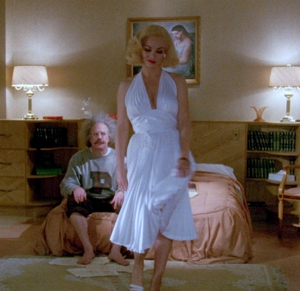
As I wrote in my capsule review of Insignificance for the Chicago Reader,
Nicolas Roeg’s 1985 film adaptation of Terry Johnson’s fanciful, satirical play — about Marilyn Monroe (Theresa Russell), Albert Einstein (Michael Emil), Joe DiMaggio (Gary Busey), and Senator Joseph McCarthy (Tony Curtis) converging in New York City in 1954 — has many detractors, but approached with the proper spirit, you may find it delightful and thought-provoking. The lead actors are all wonderful, but the key to the conceit involves not what the characters were actually like but their clichéd media images, which the film essentially honors and builds upon. The Monroe-Einstein connection isn’t completely contrived. Read more
This is fourth in an ongoing series of five lists of lists.(Sorry that I haven’t been able to fix the format irregularities.) –J.R.


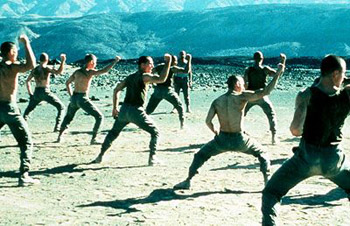
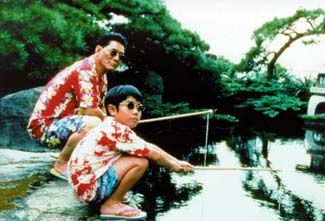
Chicago Reader, 2000:
The Wind Will Carry Us (Abbas Kiarostami)
Rosetta (Luc and Jean-Pierre Dardenne)
Beau Travail (Claire Denis)
Ghost Dog: The Way of the Samurai (Jim Jarmusch)
The River (Tsai Ming-liang)
The House of Mirth (Terence Davies)
The Smell of Camphor, the Scent of Jasmine (Bahman Farmanara) + The Child and the Soldier (Seyyed Reza Mir-Karimi)
Khroustaliov, My Car! (Alexei Guerman)
Crouching Tiger, Hidden Dragon (Ang Lee)
Kikujiro (Takeshi Kitano)
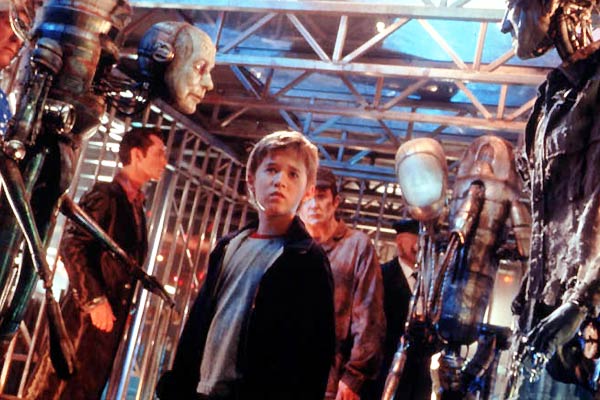
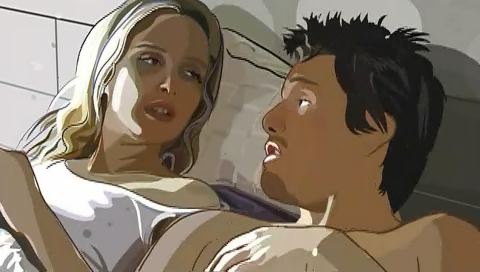
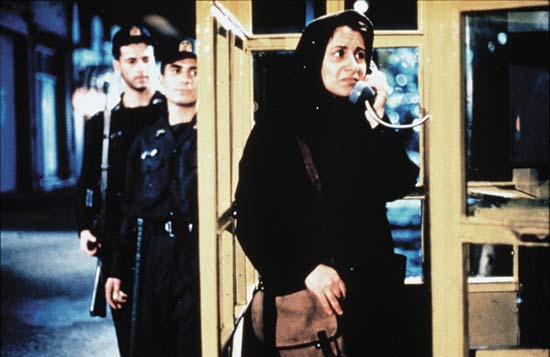

Chicago Reader, 2001:
A.I. Artificial Intelligence (Steven Spielberg)
Waking Life (Richard Linklater)
The Circle (Jafar Panahi)
ABC Africa (Abbas Kiarostami)
The Mad Songs of Fernanda Hussein (John Gianvito)
Gohatto (Taboo)(Nagisa Oshima) + Chunhyang (Im Kwon-Taek)
Yi Yi (A One And A Two…)(Edward Yang) + In The Mood For Love (Wong Kar-wai)
What Time Is It There? (Tsai Ming-liang)
Mulholland Dr. (David Lynch) + Ghost World (Terry Zwigoff)
Boesman & Lena (John Berry)
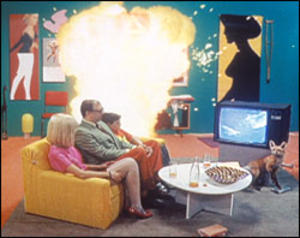

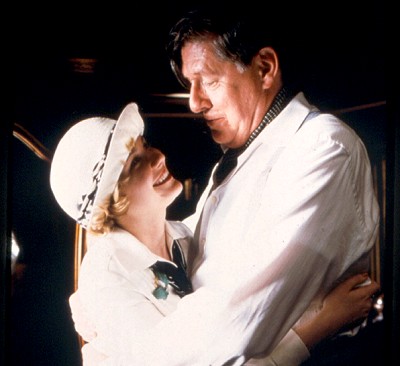
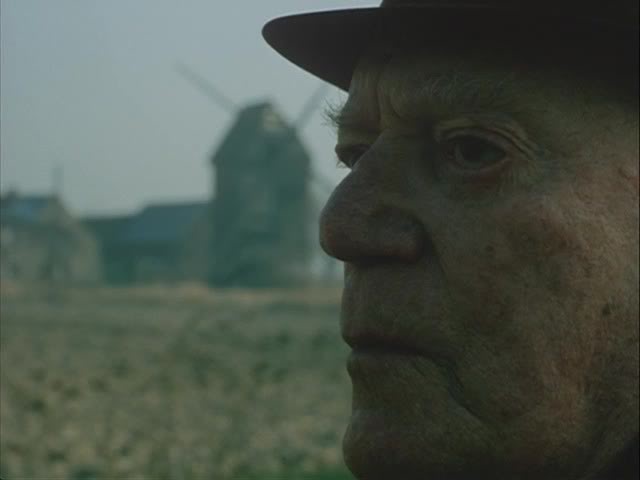
Chicago Reader, 2002:
*Corpus Callosum (Michael Snow)
Platform (Jia Zhiang-ke)
Y tu mama tambien (Alfonso Cuaron)
I’m Going Home (Manoel de Oliveira)
Ellipses, Reels 1-4 (Stan Brakhage)
Russian Ark (Alexander Sokurov)
The Cat’s Meow (Peter Bogdanovich) Germany Year 90 Nine Zero (Jean-Luc Godard) Far From Heaven (Todd Haynes) 8 Mile (Curtis Hanson)
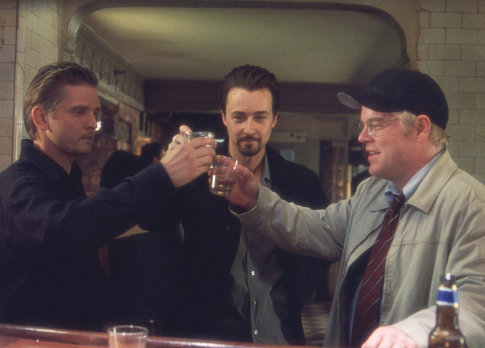
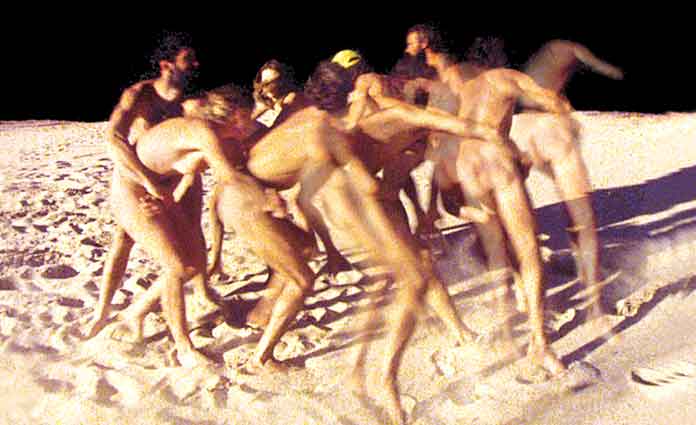
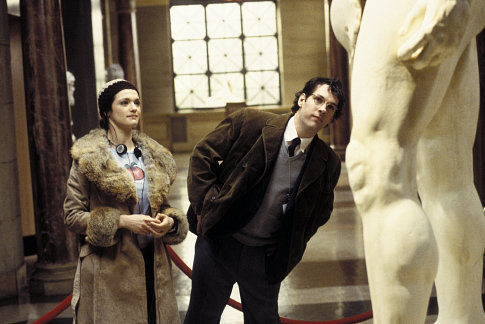
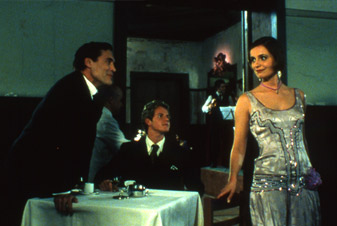
Chicago Reader, 2003:
25th Hour (Spike Lee) + Crimson Gold (Jafar Panahi) Down With Love (Peyton Reed) In the Mirror of Maya Deren (Marta Kudlacek) Pistol Opera (Seijun Suzuki) The School of Rock (Richard Linklater) The Same River Twice (Robb Moss) + My Architect: A Son’s Journey (Nathaniel Kahn) Cold Mountain (Anthony Minghella) Masked and Anonymous (Larry Charles) + The Shape of Things (Neil LaBute) Oporto of My Childhood (Manoel de Oliveira) + Joy of Madness (Hana Makhmalbaf) All the Real Girls (David Gordon Green) + Sweet Sixteen (Ken Loach)
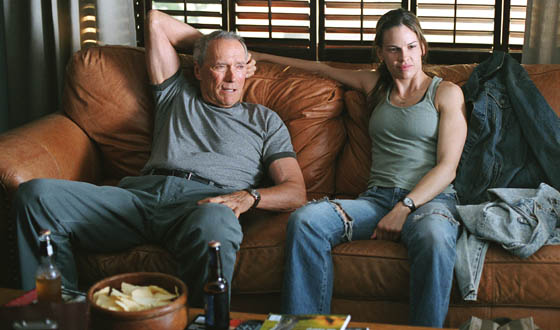
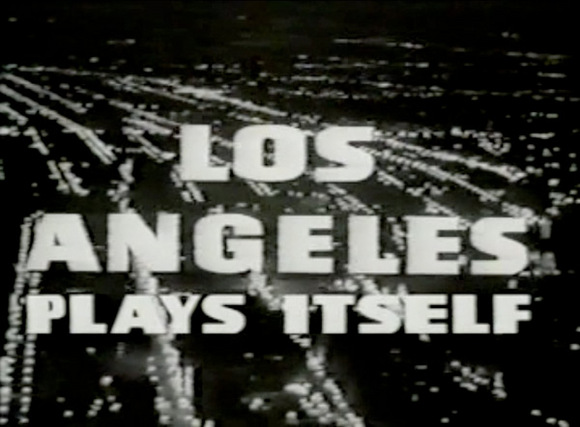
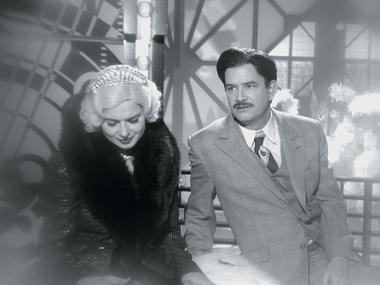

Chicago Reader, 2004:
The Big Red One: The Reconstruction (Samuel Fuller)
Million Dollar Baby (Clint Eastwood)
Moolaadé (Ousmane Sembene)
Los Angeles Plays Itself (Thom Andersen)
The Exiles (Kent Mackenzie)
The Saddest Music in the World (Guy Maddin)
Before Sunset (Richard Linklater)
Young Adam (David Mackenzie)
Coffee and Cigarettes (Jim Jarmusch)
Springtime in a Small Town (Tian Zhuangzhuang) Read more
From the Autumn 1974 Sight and Sound.
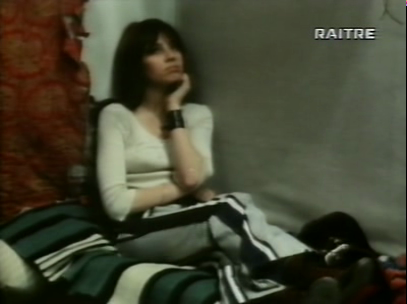

In the spring of 1970, Jacques Rivette shot about thirty hours of improvisation with over three dozen actors. Out of this massive and extremely open-ended material have emerged two films, both of which contrive to subvert the traditional movie going experience at its roots. Out 1, lasting twelve hours and forty minutes, has been screened publicly only once (at Le Havre, 9-10 September 1971) and remains for all practical purposes an invisible, legendary work. (Its subtitle, significantly, is Noli Me Tangere.) Spectre, which Rivette spent the better part of a year editing out of the first film — running 255 minutes, or roughly a third as long — was released in Paris earlier this year. And during the interval between the editing of Spectre and its release, Rivette shot and edited a third film, Céline et Julie vont en Bateau, 195 minutes in length, which surfaced in Cannes last May. The differences between and Spectre and Céline et Julie vont en Bateau are considerable: they are respectively the director’s “heaviest” film and his “lightest,” probably the least and most accessible of his six features to date. Read more
From the Chicago Reader (December 1, 1995). — J.R.
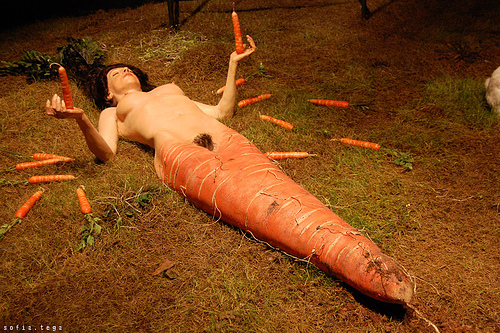
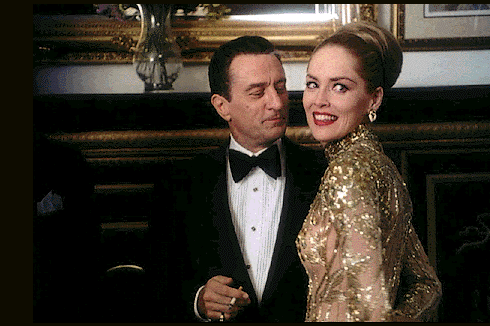
The Voice of the Moon
** (Worth seeing)
Directed by Federico Fellini
Written by Fellini, Tullio Pinelli, and Ermanno Cavazzoni
With Roberto Benigni, Paolo Villaggio, Nadia Ottaviani, Marisa Tomasi, and Angelo Orlando.
Casino
** (Worth seeing)
Directed by Martin Scorsese
Written by Nicholas Pileggi and Scorsese
With Robert De Niro, Sharon Stone, Joe Pesci, James Woods, Don Rickles, Alan King, Kevin Pollak, and L.Q. Jones.
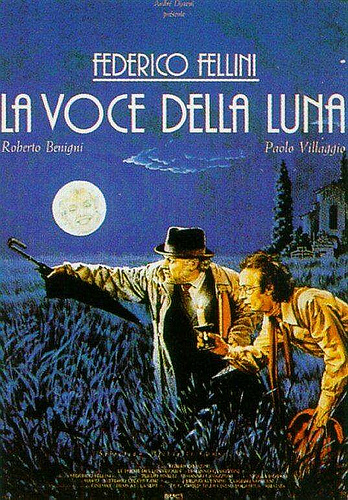
If I had the choice of seeing either Martin Scorsese’s latest (Casino) or Federico Fellini’s last (The Voice of the Moon) a second time, I’d opt for the Fellini. Both films are relatively minor works by relatively major filmmakers, though Scorsese has described The Voice of the Moon as one of Fellini’s “better pictures.” But Fellini’s swan song has a sweetness and sadness because it represents a kind of local — that is to say national — filmmaking that seems to be quickly vanishing from the mainstream. It isn’t hard to understand why no U.S. distributor has picked up this 1990 movie: it’s too Italian, and it isn’t at all easy to follow as storytelling, because it digresses all over the place. Yet these qualities, which are part of the film’s charm and poetry, might have worked in its favor outside Italy 30 years ago, when audiences tended to be more curious about other cultures and other forms of storytelling. Read more
It would obviously be hyperbolic for me to claim that the editorial evisceration originally suffered by this article was comparable to some of the curtailments experienced by Richard Pryor when he appeared on TV or in the Hollywood mainstream, but that’s more or less what it felt like to me at the time. I recently and very belatedly uncovered all but the last paragraph or so of my original version (after posting mainly the published version several months earlier), which I’ve reinstated here [on November 14, 2011]. The fact that the editor who placed this article in a lead section of Film Comment’s July-August 1982 issue entitled “The Coarsening of Movie Comedy” also changed my title to “The Man in the Great Flammable Suit” may give some notion of what his evisceration felt like at the time.
My working assumption in restoring original drafts on this site, or some approximation thereof, isn’t that my editors were always or invariably wrong, or that my editorial decisions today are necessarily superior, but, rather, an attempt to historicize and bear witness to my original intentions. It was a similar impulse that led me to undo some of the editorial changes made in the submitted manuscript of my first book, Moving Places: A Life at the Movies (1980), when I was afforded the opportunity to reconsider them for the book’s second edition 15 years later (now out of print, but available online here) — not to revise or rethink my decisions in relation to my subsequent taste but to bring the book closer to what I originally had in mind in 1980. Read more
From the June 5, 2002 issue of the Chicago Reader. — J.R.
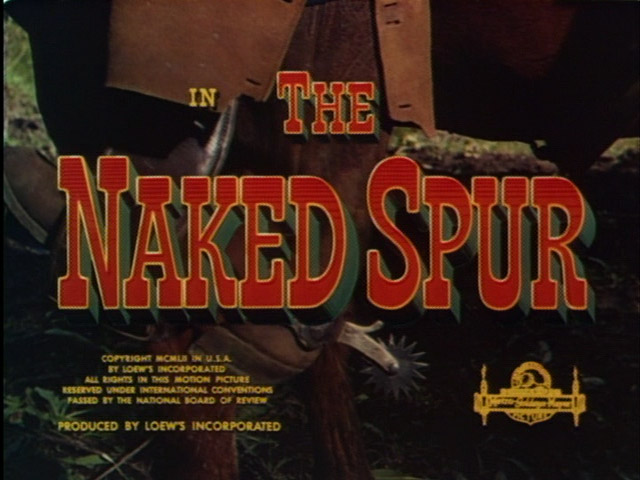
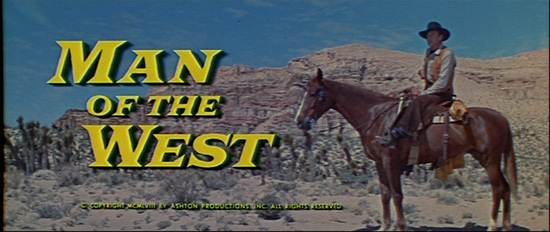
The Naked Spur
**** (Masterpiece)
Directed by Anthony Mann
Written by Sam Rolfe, Harold Jack Bloom
With James Stewart, Janet Leigh, Robert Ryan, Ralph Meeker, and Millard Mitchell.
Man of the West
**** (Masterpiece)
Directed by Anthony Mann
Written by Reginald Rose
With Gary Cooper, Julie London, Lee J. Cobb, Arthur O’Connell, Jack Lord, John Dehmer, Royal Dano, and Robert Wilke.

Q: What is the starting point for The Naked Spur?
A: We were in magnificent countryside — in Durango — and everything lent itself to improvisation. I never understood why almost all westerns are shot in desert landscapes! John Ford, for example, adores Monument Valley, but I know Monument Valley very well and it’s not the whole west. In fact, the desert represents only one part of the American west. I wanted to show the mountains, the waterfalls, the forested areas, the snowy summits — in short to rediscover the whole Daniel Boone atmosphere: the characters emerge more fully from such an environment. In that sense the shooting of The Naked Spur gave me some genuine satisfaction. –Anthony Mann in a 1967 interview

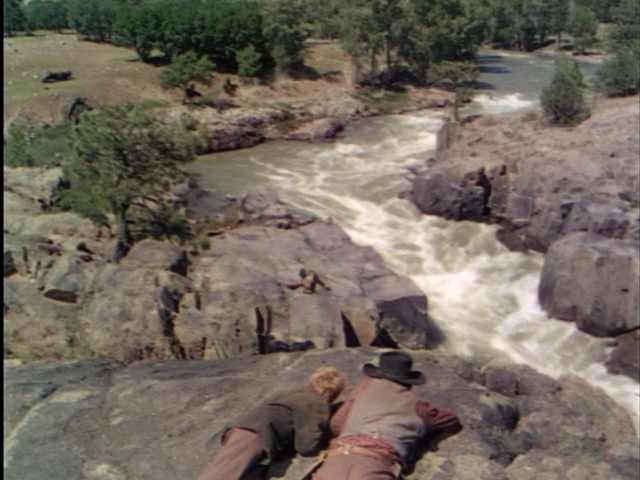
This seems to be landscape week at the Gene Siskel Film Center, with Abbas Kiarostami’s sublime Where Is the Friend’s House? Read more
From the Chicago Reader (September 20, 1991); reprinted in Placing Movies. — J.R.

I have noticed that people who were loved or felt they were loved seemed to lead fuller, happier lives. All of my own work in theater and film has been concerned with varying themes of this love.
A Woman of Mystery has to do with an unexplored segment of our society, referred to as the homeless, bag ladies, winos, bums — labels that are much easier for the public to deal with than the individual.
It has been difficult to explore this particular woman of mystery. She is not only homeless (if homeless means without the comfort of love) but she is nameless, without the practical application of social security, or any other identity. Alone, she clings to her baggages on the street.
Our heroine enters into a series of encounters that challenge her isolation, her inability to communicate. A young woman passerby seems to feel that this woman with the suitcases is the reincarnation of her dead mother. An emotional dismissal of the younger woman causes the woman’s memory to play tricks on her. A young man seems to touch unexplained dependency in her and a clerk at a travel bureau gets dangerously close to exchanging love. Read more
From the Chicago Reader (September 15, 2006). — J.R.
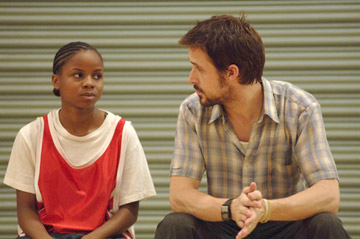
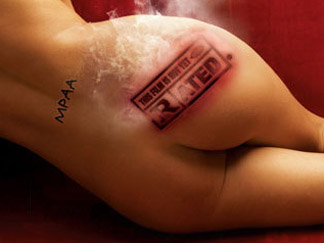
Half Nelson
**** (Masterpiece)
Directed by Ryan Fleck | Written by Anna Boden and Fleck | With Ryan Gosling, Shareeka Epps, Anthony Mackie, Monique Gabriela Curnen, Karen Chilton, and Tina Holmes
This Film Is Not Yet Rated
** (Worth seeing)
Directed by Kirby Dick | Written by Dick, Eddie Schmidt, and Matt Patterson
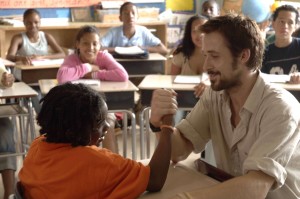
Half Nelson is open about its radical politics — remarkable at a time when most mainstream movies are being marketed as apolitical. But of course most movies have biases, the most common of which is a belief that the world can be meaningfully divided into good guys and bad guys. The real issue isn’t whether there’s pure good or pure evil in the world, as Bush keeps insisting. It’s whether we’re willing to view the world as nuanced and complex. If as Americans we believe we’re the good guys regardless of what we do — even if that includes torturing and killing as many innocent people as we deem necessary to defeat the bad guys — then we’re more likely to lose sight of what’s actually being done. It’s not hard to conclude that Saddam Hussein and Osama bin Laden are bad guys, but when Americans helped arm them both did that make us bad guys too? Read more
From the Chicago Reader (September 8, 2006). — J.R.
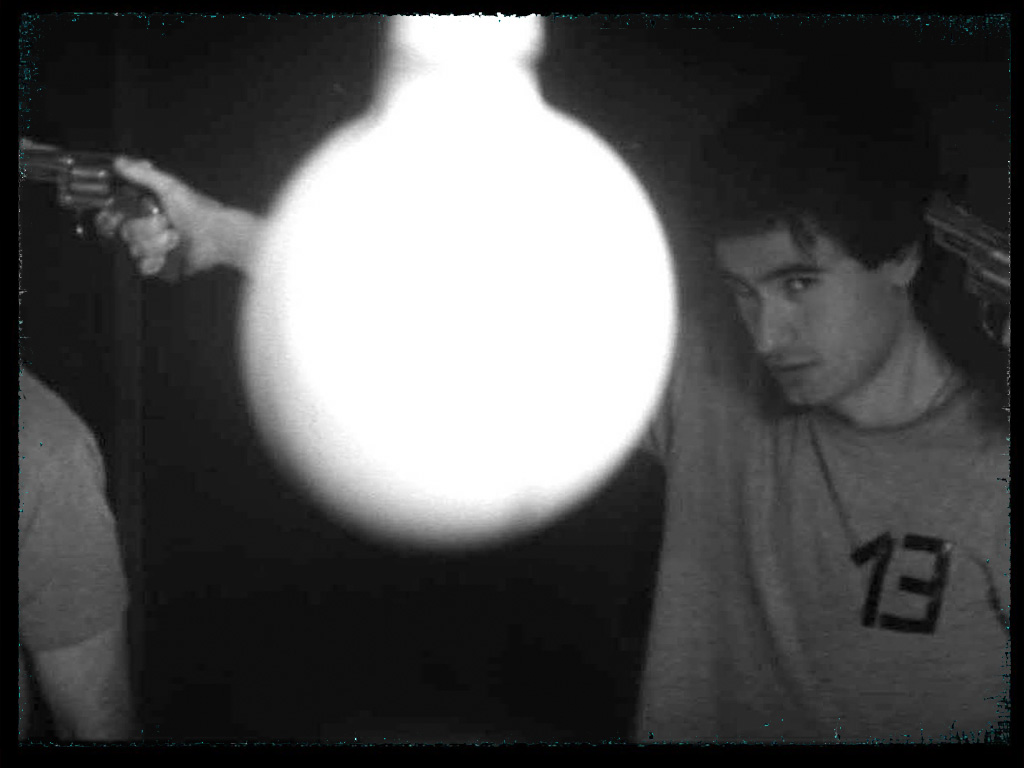
13 (Tzameti)
* (Has redeeming facet)
Directed and written by Gela Babluani
With Georges Babluani, Olga Legrand, Philippe Passon, Aurelien Recoing, Vania Vilers, and Nicolas Pignon

An English-language remake of this French thriller is already in development. But the film recycles so much I’d be surprised if it doesn’t get recycled in turn.
Fight Club has been cited as one of the key models for Gela Babluani’s 13 (Tzameti), but Michelangelo Antonioni’s The Passenger (1975) seems far more relevant, at least for its first half. In The Passenger an American journalist (Jack Nicholson) on an aborted assignment in North Africa encounters the corpse of a man he met earlier in his hotel and decides on impulse to take over the man’s identity, turning up for all of his appointments and seeing what happens. They lead into espionage and arms sales for a terrorist group, and as the journalist proceeds to Spain to keep the appointments, he does his best to elude people who are chasing him down in one or the other of his two identities.
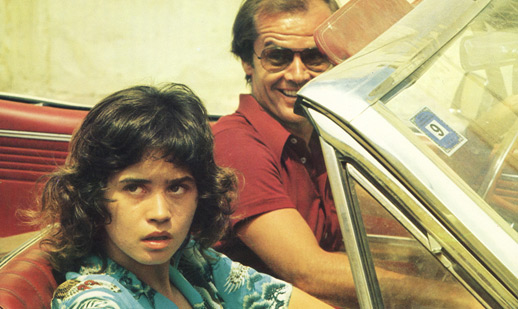
The hero of 13 (Tzameti), a 22-year-old Georgian laborer named Sebastien (Georges Babluani, a younger brother of the filmmaker), struggling in a French seaside town to support his family, is replacing the roof of a neighbor’s house when he overhears that the neighbor (Philippe Passon), a feeble morphine addict, is expecting a package in the mail that will make him and his wife (Olga Legrand) wealthy. Read more
From Film Comment (May-June 1976). For much, much more about Renoir, go here. — J.R.
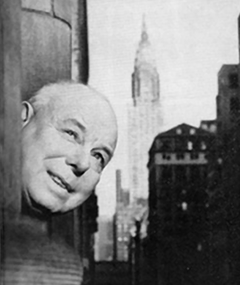
JEAN RENOIR BY ANDRE BAZIN; translated by W. W. Halsey and William H. Simon. Delta Books, 1974. $3.25, 320 pages, illustrated, index.
JEAN RENOIR BY RAYMOND DURGNAT University of California Press, 1974. $16.50, 429 pages, illustrated, index.
JEAN RENOIR: Essays, Conversations and Reviews BY PENELOPE GILLIATT McGraw-Hill, 1975. $2.95, 156 pages, index.
MY LIFE AND MY FILMS BY JEAN RENOIR; translated by Norman Denny. Atheneum, 1974. $10.00, 287 pages, illustrated, index.
REVIEWED BY JONATHAN ROSENBAUM

“. . . Renoir directs his actors as if he liked them more than the scenes they are acting and preferred the scenes which they interpret to the scenario from which they come. This approach accounts for the disparity between his dramatic goals and the style of acting, which tends to turn our attention from these aims. This style is added to the script like rich paint liberally applied to a line drawing: often the colors obscure and spill over the lines. This approach also explains the effort required to enjoy half the scenes Renoir directs. Whereas most directors try to convince the viewer immediately of the objective and psychological reality of the action and subordinate both acting and directing to this end, Renoir seems to lose sight of the audience from time to time. Read more
From the Autumn 1977 Sight and Sound.– J.R.

“A long time ago in a galaxy far, far away . . .” reads the opening title, over vast interstellar reaches of wide-screen space. “I’ve seen the future and it works!” declares a happy teenager on his way out of the movie to a TV reporter in Los Angeles — oddly parroting what Lincoln Steffens said about Russia over fifty years ago, before Ford Motors gave the slogan a second lease on life. “Another galaxy, another time,” begins the novel’s prologue more noncommittally, carefully hedging all bets. But confusion between past and future, however useful to the tactics of George Lucas’s STAR WARS, seems almost secondary to the overriding insistence that whenever this giddy space opera is taking place, it can’t possibly be anywhere quite so disagreeable as the present.
“Rather than do some angry, socially relevant film,” Lucas has said, “I realized there was another relevance that is even more important — dreams and fantasies, getting children to believe there is more to life than garbage and killing and all that real stuff like stealing hubcaps — that you could still sit and dream about exotic lands and strange creatures.” Although garbage and killing are anything but absent from STAR WARS, and stealing hubcaps is around in spirit if not in letter, Lucas’s aspiration is easy enough to comprehend, even after the social interests of his THX 1138 and AMERICAN GRAFFITI. Read more
From Cinema Scope no. 17 (Winter 2003); reprinted in Goodbye Cinema, Hello Cinephilia. — J.R.
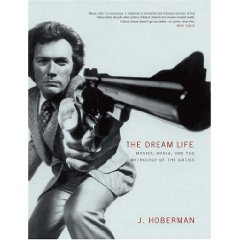
The Dream Life: Movies, Media, and the Mythology of the Sixties
by J. Hoberman (New York/London: The New Press, 461 pp., 2003.
“You know, I’m not someone who ever survived the Depression,” the great American film critic and painter Manny Farber once said to me, back in the late 1970s. “It’s not the sort of experience you ever really get over.” This was in part a gentle rebuke to someone born after the 1930s who tended to romanticize that era —- seeing glimmers of communal warmth and common cause leaking through all that picturesque poverty, especially in Hollywood pictures. For me, the 1930s were a legendary period —- the time in the U.S. when socialism came closest to being a mainstream position. Indeed, the next two decades in American history might be viewed as a series of desperate holding actions against the dreams nurtured in that epoch.
By contrast, the 1960s was a period of prosperity that nurtured outsized utopian dreams of its own —- dreams so grandiose that the succeeding decades up to the present could be viewed as another set of fearful responses. Read more
From Film Society Review (Vol. 4, No. 2, 1968), the first film magazine I ever wrote for. The was the second of my three pieces for them. -– J.R.
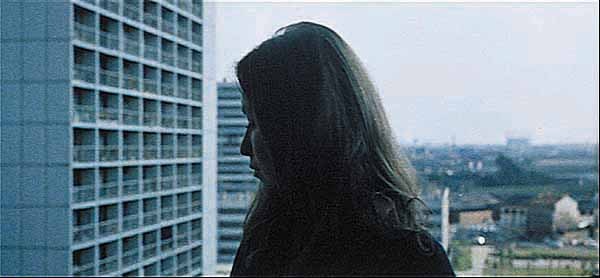
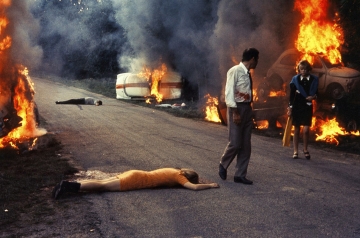
Godard: Cities and Carwrecks
By Jon Rosenbaum
***
“The impact of progress turns Reason into submission
to the facts of life, and to the dynamic capability of
producing more and bigger facts of the same sort of life.”
— Herbert Marcuse, ONE DIMENSIONAL MAN
***
“A heaving sea of air hammers in the purple brown dusk
tainted with rotten metal smell of sewergas . . . young
worker faces vibrating out of focus in yellow halos of
carbide lanterns. . . broken pipes exposed. . . .”
“They are rebuilding the City.”
Lee nodded absently. . . . “Yes… Always . . .”
— William S. Burroughs, NAKED LUNCH
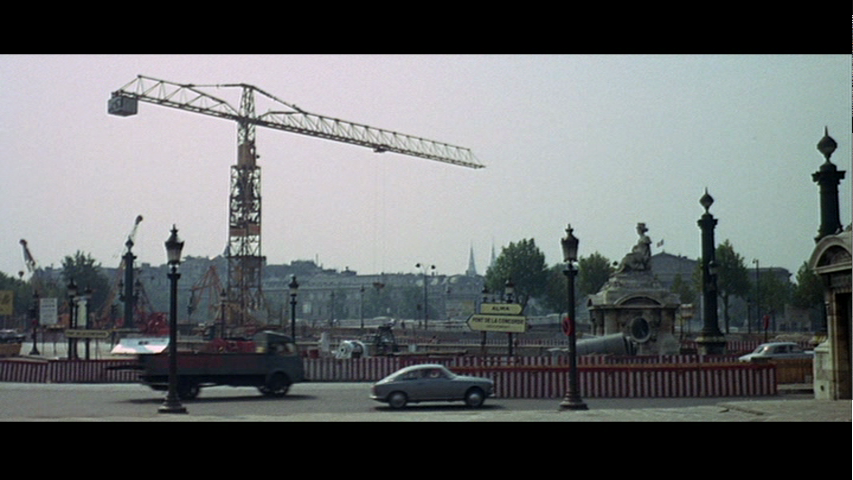
In Godard’s 2 OU 3 CHOSES QUE JE SAIS D’ELLE, Paris is shown and described undergoing a series of strange mutations. One of the most evident of these changes is the monstrous high-rise housing complexes that are being put up in the suburbs, la région Parisienne (the “elle” of the title). Certain housewives living in these new acres of concrete, in order to help ‘make ends meet,’ spend their afternoons in the city as part-time prostitutes. Read more
From The Bard Observer, May 7, 1963. For me, one of my formative experiences of film as an art form was a screening of Sunrise at Columbia University’s Macmillan Theater during one of my first three semesters of college, at New York University, before I transferred to Bard College, two hours up the Hudson River, in early 1963, where I soon took over the Friday night film series. This particular screening, late in my first semester, may have actually been the second time I screened it rather than the first, because I recall it being greeted by hoots of derisive laughter the first time I showed it at Bard (which was quite unlike the screening I’d attended at Columbia, at least as I remember it), and I suspect that the defensive tone of this piece was provoked by that unhappy experience.
I believe it was at this screening of Sunrise (although it may have been at the previous one) that Stan Brakhage, visiting the campus with P. Adams Sitney in order to meet Robert Kelly, asked me if he could screen his Prelude beforehand. I agreed to show it (probably the first Brakhage film I saw, unless this was Desistfilm) afterwards but not before, because the mimeographed film series schedule had already listed Sunrise’s starting time.I Read more
Written in early February 2012 for “En Movimiento.” my bimonthly column for Caiman Cuadernos de Cine. — J.R.
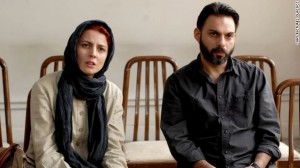
The unexpectedly huge acclaim accorded to Asghar Farhadi’s A Separation in the U.S, appears to be motivated by something more than an appreciation for a better-than-average feature. Is this a sufficient reason for it to be the most successful Iranian film to be released in America to date? Why was it named the best foreign language film of 2011 by the Golden Globes, the National Board of Review, and the New York Critics Circle, and the best picture of the year by the most popular American film critic (Roger Ebert), meanwhile placing third as the best picture by the National Society of Film Critics (which rarely considers films for this category in any language but English, and included only one other such film in its latest top ten, Ruiz’s Mistérios de Lisboa)? Why was it nominated for two separate Academy Awards?
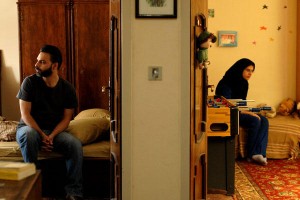
I suspect that an important reason for this sort of enthusiasm is the desire of many Americans — or at least Americans who see foreign-language films — not to go to war again, shortly after the (very) belated return of American troops from Iraq, and during the incessant and frightening beating of war drums by all of the Republican candidates for President except for Ron Paul (who still isn’t taken seriously by the mainstream media–and not because of his radical economic positions, but, to all appearances, because he refuses to support another American invasion in the Middle East). Read more
















































